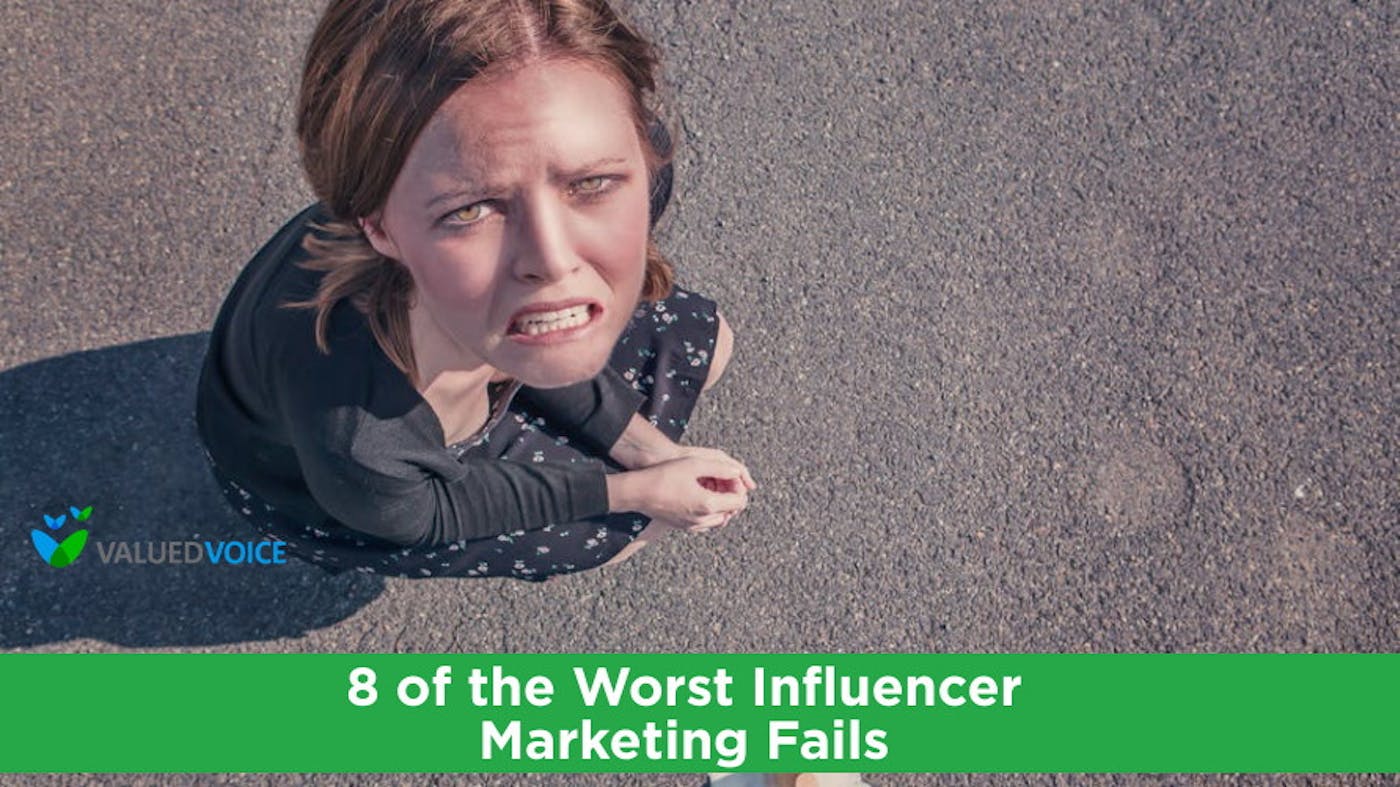One of the hottest marketing trends involves using influencers to sell products and services. They put a personalized aspect on promotion and selling.
Influencer marketing has seen some spectacular successes. But when it does not work, or something goes wrong, these high-profile digital marketing mistakes are out there for people to see.
Companies and these individuals are linked in the public’s mind. In best-case scenarios, both sides do research, and influencers and companies are well-matched, mirroring each other’s values.
In the worst cases, when costly influencer campaigns disappoint, companies must back away and try to recover. Below are eight of the worst failures in influencer marketing.
1. Olivia Jade’s USC Scandal
Popular influencer Olivia Jade, with more than two million followers on YouTube and Instagram, partnered with big retailers such as Amazon, Marc Jacobs, Sephora, and Dolce & Gabbana.
Unfortunately for them, a scandal broke when the information was released that she and her sister were admitted to the University of Southern California illegally after their mother paid the university a $500,000 bribe.
Jade had bragged repeatedly to her followers about preferring partying to school. If she had not been so openly dismissive toward education, such attention might not have been turned on this aspect of her past, and so many large companies might not have regretted the partnership.
2. JetBlue’s Instagram Contest (?)
In a misguided marketing ploy, airliner JetBlue publicized a sweepstakes contest, with the prize being a year of free flights on the airline.
To enter, Instagram users had to archive or delete their posts and then go to the contest website and upload a JetBlue image.
JetBlue used influencers to help promote the contest, although nobody seemed to know what it was about or understand it.
The idea was to flood Instagram with images of JetBlue. However, what happened is that contestants quickly grew annoyed when they wiped their feeds to enter and lost followers.
The poor organization allowed junk and spam entries, so there was no authentic way to analyze or keep track of contestants.
They never announced a winner, but JetBlue saw many angry comments on its company Instagram account.
3. Lord & Taylor’s Deceptive Advertising
The Federal Trade Commission (FTC) went after Lord & Taylor, charging the retailer paid for an article and Instagram post for the internet publication “Nylon.” It was presented as objective and genuine.
The retailer was also charged with giving dresses and thousands of dollars to people presented as objective influencers. Lord & Taylor agreed to a settlement with the FTC.
4. Electronic Arts’ Poor Influencer Choice
When Electronic Arts, known as EA, released the game “Star Wars: Battlefront,” it partnered with mainstream celebrities.
One of them was, unfortunately for the company, musician Benjamin Burnley of the band Breaking Benjamin. His candidly unsatisfactory and even angry review of the game deflated its launch.
5. Instagram Influencer’s Scam Profits
An Instagram personality with nearly one million followers used the platform to make almost $200,000 from a scam.
Influencer Aggie Lal @travel_inhershoes announced the start of a 12-week class called “How to Grow Your Instagram.”
She told people she would teach them how to earn six figures as a travel blogger. The cost of the course was $500.
About 380 people signed up, but they complained to BuzzFeed News that the class fell far short of this promise.
Another problem was that Lal’s test for them asked them to sell their followers the course with affiliate links.
6. Fyre Festival’s Failure
Fyre Festival planners worked up a frenzy for the event and paid a team of influencer superstars to promote it. The tickets sold out almost immediately, and then the problems began.
The festival was a promotion for Fyre Media Inc., a company that booked music talent. Attendees paid thousands of dollars for delicious meals and luxury accommodations. Instead, they got tents and sandwiches.
There were so many problems the first weekend of the festival that it was permanently postponed, and organizer Billy McFarland went to prison.
7. Bootea’s Copy and Paste Problems
Health and lifestyle brand Bootea blew its cover when influencer Scott Disick simply copied and pasted the message the company sent him.
It included their instructions to him about what to say. This made the nature of the relationship embarrassingly clear.
8. Volvo’s Poor Influencer Match
Volvo’s partnership with model and fashion expert Chriselle Lim was a glaring mismatch and ran out of fuel right away.
Lim’s caption with a too-perfect photograph jumped on the eco-friendly bandwagon without proper context.
Her fans and followers noticed right away and left numerous angry comments. The pairing was not helpful for either Lim or Volvo.
